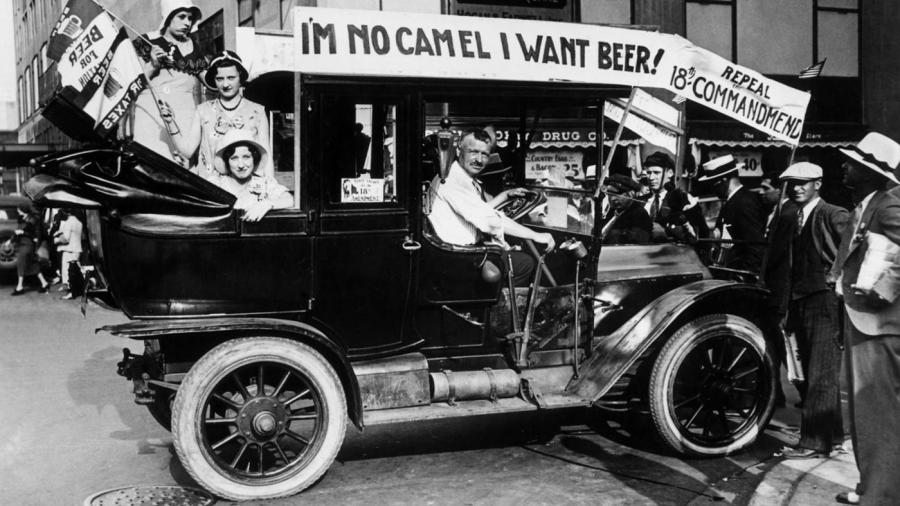Why Did Prohibition Start?

Prohibition was initiated as part of the Temperance movement, which asserted that alcohol and intoxication was responsible for crime, murder and other negative aspects of society. Although the organized Temperance movement initially attempted to moderate alcohol consumption, which was becoming pervasive after the American Revolution, it began pushing for the complete prohibition of alcohol after several decades.
Nearly every state was occupied by a Temperance movement at the beginning of the 20th century, and more than 50 percent of the states already had laws prohibiting alcohol by 1916. The 18th Amendment of the constitution was ratified in 1919, prohibiting the manufacture and sale of alcohol throughout the United States. In the same year, the Volstead Act was passed to clarify the amendment to include all intoxicating beverages such as beer, wine and malts; the act also prohibited the ownership of items designed to manufacture alcohol.
During this time, a new type of gangster arose due to the high demand and limited supply of alcohol. These gangsters hired men to smuggle rum or whiskey into the country and run secret bars that were called speakeasies. One of the most famous gangsters during Prohibition was Al Capone in Chicago.
Organizations began forming to repeal the 18th Amendment almost immediately after it went into effect, as the benefits promised by the Temperance movement were not seen. The amendment was repealed in 1933.





